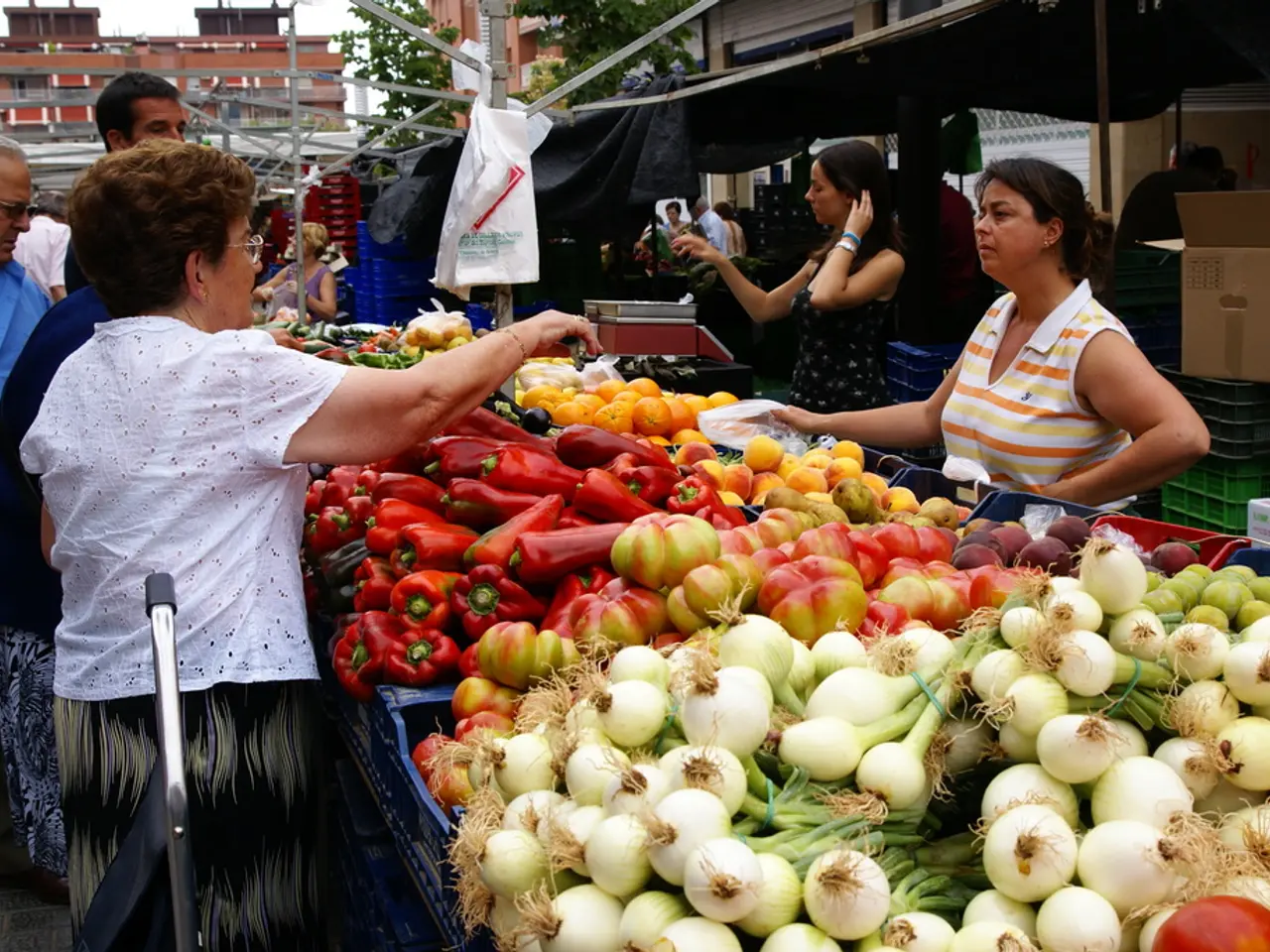Capital-Gathering Guidelines in 2025: A Discussion with Dr. David Buckeridge
In the world of agribusiness and life sciences, Dr. David Buckeridge, a longtime operator, investor, and advisor, is set to host a series of investment pitches at the Focus on Finance event hosted by Agri-Tech-E on September 11, 2025, in Cambridge, UK.
Dr. Buckeridge's insights offer valuable lessons for startups navigating the complex landscape of ESG investing, particularly in the food and agriculture sectors. 2021 was often referred to as "the year of ESG investing," with record levels of capital pumped into alt meat, indoor ag, and other food- and farming-related industries. This surge was fueled by institutional capital seeking sustainable and impact-driven investments in combating environmental and social challenges.
However, as Dr. Buckeridge notes, good old-fashioned FOMO played a role in the hype of 2021, leading to some critical details being overlooked by investors. Thoroughly researching potential investors is crucial to ensure they are likely to have an interest in the startup's offerings. Startups should test-drive their pitch deck on as many people as possible, seeking honest feedback.
The key factors that led to the hype and subsequent market correction in ESG investing for food and agriculture startups in 2021 were:
- Record influx of capital driven by the ESG agenda: Investors saw undeniable long-term potential in food and agtech sectors due to sustainability needs and food security challenges, driving initial enthusiasm and high valuations.
- Strong macro-level potential of food and agriculture: Investors were excited about technologies like precision fermentation, AI-powered platforms for measuring emissions and biodiversity, genome editing for climate resilience, and digital farming solutions, promising to transform agriculture and food production sustainably.
- Urgency to address pressing global challenges: The sector was responding to the urgent need to feed a growing global population (expected 10 billion by 2050), reduce environmental footprint including deforestation and greenhouse gas emissions, and solve food security issues, which further fueled ESG investment momentum.
The subsequent market correction occurred as:
- Investors reassessed risk and valuation amid overlooked details and challenges in scaling and commercializing agrifoodtech innovations, leading to more cautious capital deployment post-2021 “hype.”
- The volatility of early-stage ventures in ESG sectors became clearer, alongside delays in delivering promised sustainability impacts and financial returns.
- The lack of consistent federal or institutional support in some regions may have also constrained scaling of agtech breakthroughs, highlighting infrastructural and policy gaps.
In essence, a combination of initial exuberance driven by ESG and sustainability ambitions, promising innovative technologies, and urgent global needs created the hype in 2021, while market realities and scaling challenges led to the prudent correction afterward.
Dr. Buckeridge cautions against being "overly skeptical" about agrifoodtech moving forward, as these investments were made from pools of capital designated to achieve high returns, and with this comes risk. Startups seeking capital should start their fundraising process early to allow for sufficient time to raise capital. Consider hiring an advisor to help with the fundraising process, as there is a lot of detail to deal with, especially for those with less experience.
Startups should aim to identify clear value inflection points to increase certainty and reduce risk for investors. The value proposition to the planet has often exceeded the value proposition to the customer in agrifoodtech investments. The pitch deck should be clear, concise, and convey the startup's value proposition and unique selling proposition.
Lastly, Dr. Buckeridge is now the chair of the National Institute of Agricultural Botany in the UK. He advises startups to expect to be distracted from the business during the fundraising process and to kiss a lot of frogs. However, he emphasises the importance of staying positive and confident throughout the process. Technology has to work and be durable, often in field conditions. Large investment funds may not be suitable for early-stage startups with smaller funding requirements. More than one indoor ag operation had its business severely impacted by disease.
In conclusion, the lessons learned from the 2021 ESG investing hype and correction serve as a valuable guide for startups in the food and agriculture sectors. By understanding the factors that drove the initial excitement and the challenges that followed, startups can position themselves for success in the future.
Technology plays a crucial role in the future of agribusiness and life sciences, with innovations like precision fermentation, AI-powered platforms, genome editing, and digital farming solutions promising to transform agriculture and food production sustainably. (technology, agriculture, transform)
To secure funding in the complex world of ESG investing, startups should identify clear value inflection points, communicate their unique selling proposition clearly, and ensure their technology is durable, often in field conditions. (ESG investing, secure funding, durability, field conditions)




